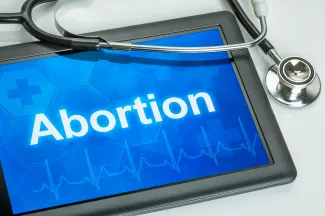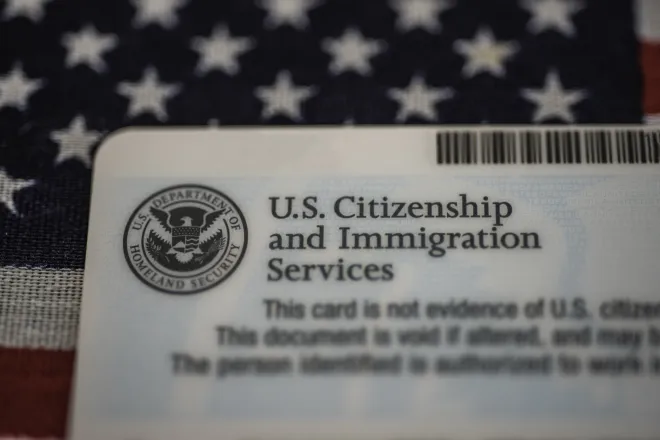
Colorado abortion clinics report uptick in protesters and trespassing
When volunteers in Pueblo, Colorado, escort patients to abortion clinics, they have umbrellas on hand to create a visual barrier in case nearby protesters try to intimidate patients.
They also play music to “drown out the harassment and create a calmer atmosphere,” Pueblo ProChoice President Jacquelyn Bernal said.
If those deescalation tactics don’t work and situations escalate beyond what her organization can control, they contact law enforcement, Bernal said.

© sibway - iStock-1766290065
“Our first priority is getting the patient inside safely so they can make it to their appointment without interference,” Bernal said in a statement. “The bubble law is part of Colorado’s criminal code, and it’s there to protect patients and providers. We just need it to be enforced.”
Colorado’s “bubble law” prohibits anyone from approaching people within 100 feet of a health care facility, including abortion clinics. It was crafted to curb the practice of protesters trying to dissuade patients from seeking abortions.
Most Colorado abortion providers who participated in research by the National Abortion Federation said they experienced trespassing and protests outside their clinics in 2023 and 2024, according to a recent report.
Of the 17 Colorado abortion providers that participated, 65 percent experienced at least one incident of trespassing, 53 percent reported protestors outside, 24 percent experienced an incident of obstruction, and 18 percent received threats.
A spokesperson for the National Abortion Federation said Colorado providers received 216 suspicious, harassing or threatening calls, mail, emails or social media posts, compared with 150 in the previous report covering 2020-2022. A similar number of providers participated in the both reports but not the exact same group.
Providers reported 27 instances of trespassing in the most recent report compared with 17 in the previous, 10 instances of vandalism compared with eight, eight instances of obstruction compared with seven, and five threats of death or harm compared with three.
Bernal said while Colorado’s bubble law exists to prevent “exactly this kind of intimidation,” law enforcement needs to better enforce it.
“Law enforcement must do their part to protect patients,” Bernal said. “When federal protections fall short, it’s up to our communities and our state to step up. We need to protect each other and uphold the right to seek health care safely.”

Providers in Colorado have consistently seen higher numbers of people seeking abortion care and have adapted to meet the new demand after the U.S. Supreme Court overturned Roe v. Wade. Every state except New Mexico that borders Colorado has some abortion restrictions. Nearby Texas does, too.
About 62 percent of Colorado voters in November approved Amendment 79, which enshrined access to abortion as a right in the Colorado Constitution. The Colorado Legislature approved a measure implementing the amendment, and also passed several shield laws to protect providers and out-of-state patients.
Christie Burkhardt, director of facilities and infrastructure operations at the Boulder Valley Health Center, joined the center’s team shortly after the 2022 Supreme Court decision upending national abortion rights to help with the uptick in demand and oversee security.
Between Burkhardt’s start with the center in July 2022 and October 2024, she said she only reached out to local law enforcement over disruptions twice. Since October 2024, as the presidential election approached and rhetoric on abortion rights grew, she has called law enforcement 17 times for assistance with disruptions at the clinic. She said she has gotten to know the local police department “very well” in the last six months.
The center, which offers the full spectrum of reproductive health care, sees protesters at the public sidewalk next to its parking lot two to three times per week as of fall 2024, Burkhardt said. Small groups of people will try to talk to patients and clinic staff for anywhere from half an hour to full days, she said. Burkhardt said protesters are “very emboldened” after the Trump administration pardoned protesters convicted under the Freedom of Access to Clinic Entrances Act and halted its enforcement.
“That can get very frightening for folks that have never been approached and have never had to deal with someone protesting what they do and at their work place, so our team has definitely had to learn a little bit on the fly,” Burkhardt said.
She said harassing and threatening phone calls also increased at the center, particularly after the Boulder Abortion Clinic — one of the few clinics in the country that offered late-term abortions — shut its doors at the end of April. The center also receives about 10-15 pieces of threatening mail a month.
Staff canceled a sex ed summer camp planned for 5th grade to 8th grade students out of safety concerns after the center garnered national attention online from right-wing media and other abortion opponents. Burkhardt said she has weekly conversations with clinic staff about safety, and they’ve developed new policies to ensure the safety of staff and patients.
Karen Middleton, president of Cobalt, which advocates for access to reproductive health care and runs an abortion fund in Colorado, said her organization remains in contact with its partner clinics to gather feedback on their concerns and needs around clinic safety.
“Reports like these really emphasize why states like Colorado must take action on their own to ensure patients and providers are protected now that federal protection is not guaranteed,” Middleton said in a statement.
Planned Parenthood of the Rocky Mountains, which operates about a dozen clinics across the state, declined to comment for this article.
















